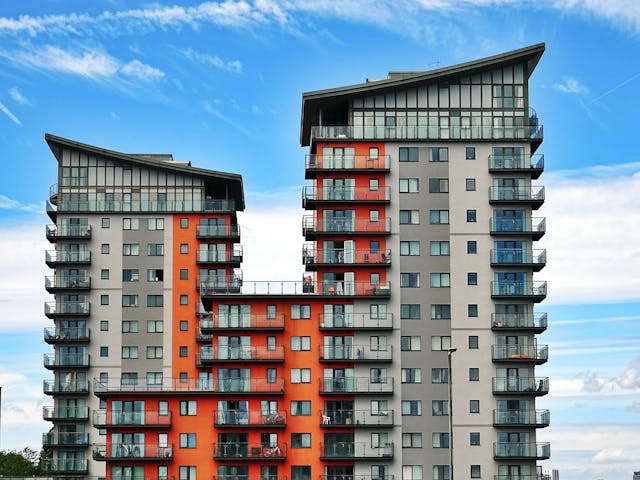Is it worth buying a flat in 2024? Pros and cons to know

According to Halifax, first-time buyers are purchasing smaller properties, such as flats, more often than larger properties. This contrasts against the “race for space” trend during the pandemic when people were rushing to buy larger homes.
However, though flat ownership is increasing, it’s always important to be aware of both the pros and cons of this property type. With the service charge scandal highlighting rising rates for leaseholders and other news affecting flat owners, it undoubtedly begs the question: Is it worth buying a flat in 2024?
Read on for the advantages and disadvantages of buying a flat in 2024.
Pros Of Buying A Flat
Safety
Buying a flat has a higher sense of security in your living experience. This is because it’s harder for onlookers to know which flat you live in or even your floor level. In comparison, living in a house means your door number is more easily identifiable to onlookers.
Arguably, it’s easier to build a sense of community when living in a flat, as you’re likely to encounter neighbours in the same building more often than if you lived in a separate building. This can, therefore, add to your sense of belonging and security.
Concierge services with security guards are also part of some flat blocks.
Less Maintenance Responsibility
As flats are usually one-floor properties, less maintenance work is typically required than houses with several floors.
The fees that you do pay, such as service charges and ground rent, are the responsibility of the freeholder to implement, so you will have less responsibility to find people to fix communal issues, for example.
Whereas, if you’re a homeowner or freeholder, it is your sole responsibility to deal with any repairs or issues.
So, although you may receive lower monthly costs without service charges, for example, you could end up with bigger bills for maintenance later on.
More Affordable
Although flats are facing price increases, they are still often the most affordable property type compared to larger properties like homes.
Flats may be a good option for first-time buyers as they usually require a smaller deposit. Of course, as with any property, this price varies depending on the area.
Cons of buying a flat
More Noisy Neighbours
Living in a flat means you are closer to neighbours and will likely have more of them, too. This means there is more chance of hearing your neighbours from various directions, depending on what floor you live on.
You would also have to be more considerate of the noise in your apartment – whether it’s for a party or playing music out loud.
Variable Service Charges
Unlike homeowners who are freehold owners, as a flat owner, you most likely would be a leaseholder. Being a leaseholder typically comes with service charges and ground rent that covers maintenance of the whole building you are in instead of just your individual flat.
The service charge and ground rent cover communal costs, such as fixing the lift and upkeep of other communal areas.
In the UK, the service charge scandal is currently seeing various leaseholders facing high service rate charges on top of the mortgage they are already paying.
Valued Lower Than Houses
Because flats are typically more affordable than houses, it means that they are valued less than houses. This means that if you do sell your flat, it’s likely to be worth less than a freehold house, leaving you with less cash to upscale than if you were to get a house.
Is it worth buying a flat in 2024?
The housing crisis has caused rates to rise everywhere. From mortgages to service charges, the property market is far from void in hiking rates, regardless of the property type.
Service charges and ground rent are factors required for flat and leasehold properties compared to home and freehold properties. However houses tend to be more expensive meaning they have a bigger mortgage to pay off.
The mortgage or housing scheme you buy a flat with can also impact whether a flat is your best option.
Flats are particularly popular for first-time buyers as they tend to require a smaller deposit, which can make it easier to get on the property ladder. So, there are still many benefits to flat ownership in 2024.
Ultimately, when deciding whether it is worth it buying a flat in 2024, the key is understanding your financial situation. Ensure you’re fully aware of the requirements of buying a flat. Weigh out the pros and cons according to your specific circumstance.
If you want to learn more, the Homebuyers Club has a video course module that dives deeper into the pros and cons of different property types. You can sign up for the online community here.
Get in touch
Feel free to get in touch with general enquiries using the contact details below alternatively fill out the form and one of team members will be in touch shortly.


